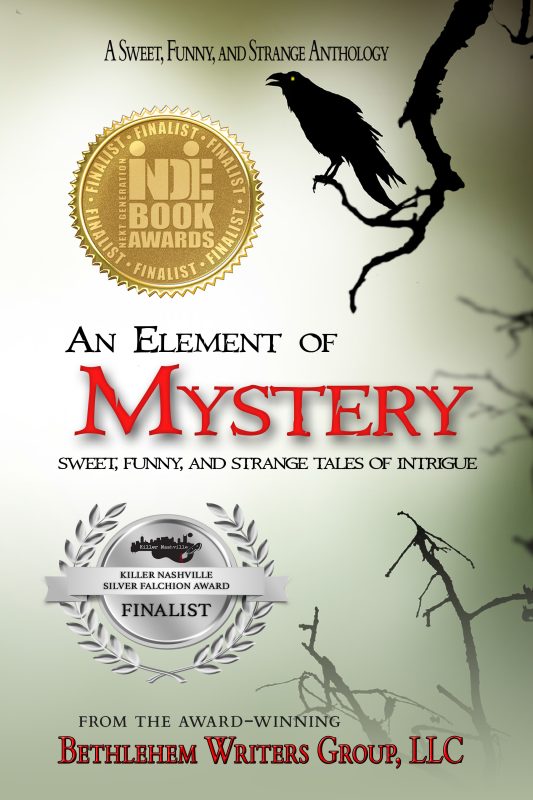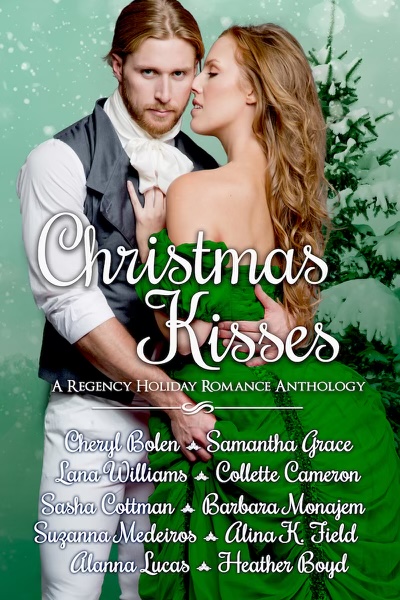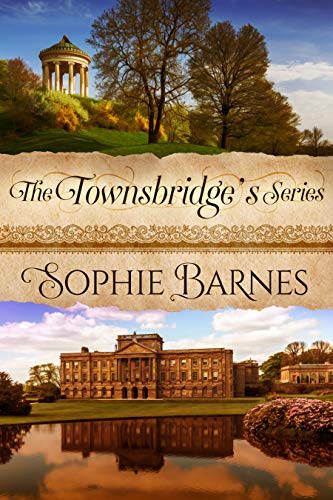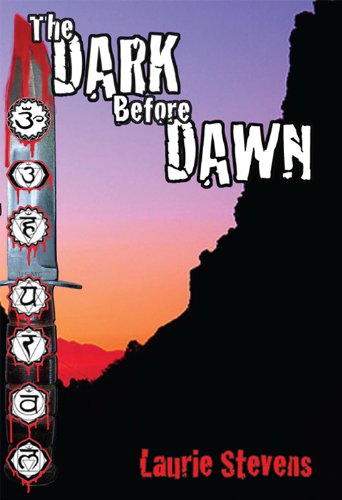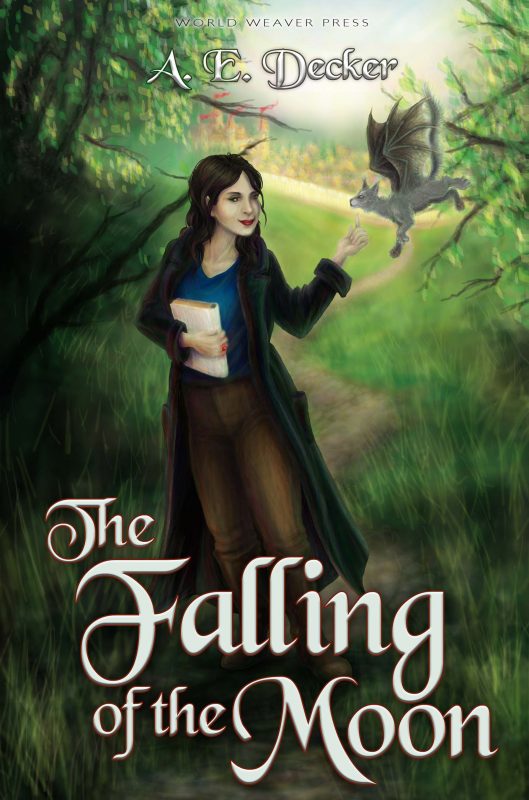Coming Soon by Jenny Jensen
November 19, 2020 by Jenny Jensen in category On writing . . . by Jenny Jensen tagged as covid, fantasy, fiction, Influences, mystery, romance, science fiction
Every writer is subject to the influences of their time, influences that shape their work in some way. From Stephan King’s brand of horror—which he’s said was influenced by the pervasive fears of the cold war — to the oh so mannerly and delicately choreographed plots of Regency era literature, a reader can feel the spirit of the author’s era. I think that’s why I love H. G. Wells and his manly adventurers whose waistcoats and stiff collars are never out of place despite the monsters and hazards that beset them, and they always have time for a full service tea.
Covid is the strongest influence on us at present, changing behavior at a really basic social level, and I am eagerly anticipating how that will be reflected in contemporary fiction. Each genre presents a host of different affects to play with. How will full dress PPE impact the mystery and crime genre? With my mask in place, my sunglasses on my nose and a cap on my head, I am hard to recognize. Add gloves to that, and I don’t have to sweat over fingerprints. And if you’re not short and a touch chubby like me, it would be easy to quickly blend in with the (6 feet apart) crowd and make a smooth getaway. Does anyone want to get near enough to grab a suspect?
Science fiction, viewed through this lens, might use the long-lasting effects of a worldwide pandemic in interesting ways. The population has been decimated, but the disease is at last eradicated. Does the population retain a fear of personal distance? Does it become ritualized? Do they formalize ways of washing their food, like futuristic raccoons? Has public dining or public attendance at an event become distasteful, and if it is replaced, what with? That could be really fun.
Fantasy always gets a lovely reality pass. That’s part of why we love it. Fantasy isn’t required to reflect anything about the real world. But again, every writer is working through the lens of their own reality and all these new behaviors and social concerns are bound to be reflected somehow. Maybe it’s a race of creatures that are forever shunned—The Cooties. You can’t ever get close to them or they will sicken you, but the hero requires the help of those outcasts and so the taboo has to be overcome. It could be that a virus has been locked in a magic cave and as the ultimate weapon, it must be guarded by the heart of a dragon. The influence of this pandemic will be in there somewhere.
Then there’s Romance! I am especially eager to see how this genre deals with our current reality. One of the hallmarks of Romance fiction is its timeliness. We never tire of boy meets girl stories set in the shared here and now. These are tales that reflect our contemporary social and moral norms with the clarity of a mirror image. How will masks and gloves and 6 feet apart influence a love story? How will a chance meeting play out? Is love at first sight possible?
I have complete faith in Romance authors to create inventive and realistic approaches to this current social reality. I haven’t come across any yet. I may not have looked hard enough, but if you know of a romance in the time of Covid, I hope you’ll share it with me. I can’t wait to read it.
Jenny
Void of Power by Andrew C. Raiford
November 18, 2020 by marianne h donley in category Apples & Oranges by Marianne H. Donley, Rabt Book Tours, Spotlight tagged as #AndrewCRaiford, #BookBuzz, #RABTBookTours, #VoidofPower, @RABTBookTours
Science Fiction, Fantasy
Published: April 2020
Publisher: Indies United Publishing House
The Void belongs to everyone and belongs to no one. Because of the Cultural War Treaty, the federal government or any agent under their control cannot enter the Void. Ruled for nearly sixty by gangs and drug cartels, the “settlers” of the Void must live by their wits and their skill at arms.
Raised by scientists who had been sequestered in an underground complex in the Texas panhandle, the Walsh family employs their genius and talents to forever change the quality of life for the citizens of the Void using technologies far beyond the imagination of ordinary people.
When government forces enter the Void on a capture-or-kill mission which has targeted two extraordinarily gifted children, they run headlong into this family of geniuses and Texas Rangers who dedicate themselves to protect the children. The feds soon realize that they are mice attempting to capture one very mean, intelligent cat. The stakes must be raised. Lives are lost. War ensues.
About the Author
Born in Houston, Texas, Andrew was raised in a family of seven brothers. Most of the action and adventure that dominated his young life was that which sprang from the imaginations of the brothers Raiford. Since there was no limit to the stories they could create through their play-acting, it was not uncommon to have Daniel Boone not only be attacked by bears or red-coats, but also Nazis and/or extraterrestrial conquerors. Imaginative eight-year-olds care nothing for history.
During his young adult years, Andrew took on some very odd jobs to keep his young family fed. For two years he was a real cowboy who rode and roped and pushed cattle on a large ranch nestled in the snow-capped mountains of northern California. After moving back to his home state of Texas he worked in the printing business as a journeyman pressman, and later in gun sales and corporate security.
Andrew even worked in church ministry for ten years during the period that he and his wife raised five talented children. They would later become the inspiration for Andrew’s first novel, Void of Power – New Generation, which surprisingly contains no Nazis or extraterrestrial invaders.
Contact Links
Purchase Links
Half Face by Mara Li
November 17, 2020 by marianne h donley in category Apples & Oranges by Marianne H. Donley, Rabt Book Tours, Spotlight tagged as #BookBuzz, #HalfFace, #MaraLi, #RABTBookTours, @LandsAtlantic, @RABTBookTours
Date Published: 11/17/2020
Publisher: Lands Atlantic Publishing
Nineteen-year-old Juliet can’t shake the nightmares after surviving a brutal bank robbery. In order to put those terrifying memories behind, she’ll have to testify against the criminal known as the Half Face. She convinces herself that she is perfectly safe, until he manages to break free and grab the nearest hostage he sets his sights on. Her.
In an effort to escape the captivity of the law, and his tortured past, the Half Face takes Juliet on an obsessive search for answers and redemption. During the harsh journey, his unpredictability fuels Juliet’s worst fear, that he just may be insane and beyond any hope of saving.
Excerpt
I glance at my watch. Fifteen minutes to go. It seems both too fast and too slow.
I go over the rehearsed words in my head. What if I forget everything I need to say? What if I black out, or cry? I don’t want to cry where he can see me. No, that cannot happen.
In an attempt to distract myself, I slide my phone out of my pocket and mindlessly scroll through the menu. I freeze when I come across the news feed.
Liveblog: trial of top-criminal known as “the Half Face” continuing today.
Someone in that courtroom is twittering the events, and I’m locked up in this miserable room until they can bring me out like the next circus act.
‘I must ask you to put your phone away for now,’ the woman says. When I look up, I find her looking at me with a pitying gaze. ‘We don’t want you to read anything that can influence your statement.’
Of course. ‘I’m just nervous,’ I say, and put my phone back in my pocket.
‘You will be absolutely fine. If you find you don’t want to look at him, you don’t have to. Remember that you’re doing this to help us put him away for good. That is why you chose to testify, isn’t it?’
‘Right.’
She nods, and we fall into silence again, until there’s a brief knock on our door. The woman smiles, rises from her chair and beckons me.
Suddenly, my heart is racing even harder than before. ‘Can…can I go to the bathroom real quick?’
‘Sure. Just this way.’ She leads me over to another door and remains outside as I enter.
The tiles are shiny and clean. I hear the buzzing of air conditioning.
After I flush, I take a quick moment to splash a handful of cold water in my face. It helps a little. I lean my hands on the sink and stare at my reflection in the round mirror. I’m very pale. My eyes are wide open, like a frightened animal. Strands of dark brown hair are falling from the bun that had been so tightly secured this morning. They cling to my sweaty face. I brush them away.
The woman knocks on the door. ‘Juliet? It’s time.’
I’m on the verge of calling out: No! Leave me alone, I’m not going! There’s a thick feeling in my throat that I try to get rid of by swallowing. When it doesn’t work, I settle for a deep breath before wiping my palms on my skirt and exiting the bathroom.
‘There’s no need to be nervous,’ the woman says again. But what does she know? She didn’t have to drop to the ground, pretending to be a dead body, while a monster was standing mere feet away from her barking orders.
We make our way across the building, all the way to the end of the long corridor, and make a right turn. The entire building is so clean. We pass a large, square painting on the wall; we pass a mirror where I briefly catch my pale reflection, we pass a man with a cell phone pressed to his ear, giving us a curious glance.
Then the woman stops in front of a dark, polished door. The small plate next to the door reads Courtroom 14.
We’re here.
The woman gives me an encouraging smile. I pull up the corners of my mouth, just enough to make it look like I’m smiling back.
‘Remember, you just have to answer a few questions. I’ll be here to escort you back.’
‘I know.’
She looks like she wants to say something else, but before she does, the door opens. I automatically step back, creating some space for Harry Dartes. He sees me, undoubtedly registers the worry in my eyes, and gives my shoulder a brief squeeze. ‘It’s worse just before you go in, girl.’
I nod. He smiles one last time before another court attendant urges him on, and mine gestures to me, indicating that I will have to enter Courtroom 14 at last.
About the Author
Mara Li has been writing from an early age. She is inspired by fairytales, myths and legends from all over the world. In 2016 her debut novel De Stem van de Zee was nominated for the Harland Awards Roman Prize for best Dutch fantasy. Winter is her writing season (summer never gets much of it). Tea and ginger nuts are her writing food, her cat’s attention can sometimes be an obstacle. Her novel, Half Face, launches her as an international author with books published in multiple countries and languages.
Contact Links
Purchase Link
Savaged Devotion by Jennifer Lyon
November 16, 2020 by marianne h donley in category Apples & Oranges by Marianne H. Donley, Spotlight tagged as Jennifer Lyon, new release, Savaged Illusions Trilogy
The stunning conclusion to the Savaged Illusion Trilogy.

She fell in love with a rock star and lost everything…
Liza Cade won’t be safe until the disgraced former rock star who tormented her for a decade is captured or dead. All of her dreams died the night Gene Hayes swore to kill her, exposing her husband’s desperate lie and resulting in the loss of their baby. Liza is heartbroken and leaves, but can she walk away from her marriage and the powerful love of Justice?
He loves her too much to let her go…
Rock star Justice Cade learned the hard way love is more important than fame, and he’s determined to win back his wife. But just as he convinces her to give him a year to prove his love, he’s forced to go on an extended international tour to use his fame to ruin Gene Hayes. He won’t let physical distance, broken hearts, savaged vows or a vicious enemy come between him and his beloved Beth again. He fights with everything he has to regain her trust, will she forgive him?
They reunite in a savagely devoted love that charms the rock world…and drives her enemy into a murderous rage.
In the stunning conclusion to the Savaged Illusions Trilogy, Liza and Justice’s powerful love triumphs over tragedy. But their happily ever after is threatened by the man who has nothing left…except his vow to destroy Liza.
Savaged Devotion is the 3rd and final book the Savaged Illusions Trilogy.
Excerpt from Savaged Devotion
His skin tightened at the confidence brimming in her rendition, and in the way she owned her moment of singing with a kitchen tool in the middle of the night like she was a rock star. She was doing exactly what they’d talked about earlier, standing up to him in a song by Pink and Nate.
Justice couldn’t have held back now if he had a punctured lung, and he poured more passion into the verse. Singing was his way of communicating, of having a voice in the world after being a kid whose parents didn’t want him, and then thrown into juvie as if he’d been human garbage to be tossed in a dumpster. Later, it’d been all he’d had left after losing their daughter and Beth leaving him.
Beth stayed right there with him in the moment, belting out her part and not the least bit cowed by his powerful vocals, nor did she stumble when she couldn’t hit the amazing notes that Pink could. Nope, here in this kitchen alone with him, she sang like she wrote—all in with no censor. When she wound her voice with his in the chorus, his entire body twanged with a wild joy that was damn near orgasmic.
Just as he’d worked so hard to find a path into her secret world of writing, tonight Beth had found her path into his world of singing.
As the song ended, he reached out, taking her spatula and pulling her against him. Tilting her face up, he said, “You trying to steal my limelight, baby?”
She grinned. “I don’t think you or Pink need to worry.”
He laughed. “I’m sure Pink will be relieved, but you’re not bad. You can sing. Not as good as me, of course.”
She rolled her eyes. “Did your fat ego fall off the bed and wake you up?”
Other Titles in the Savaged Illusion Series
Giving Thanks in So Many Words
November 15, 2020 by Rebecca Forster in category The Write Life by Rebecca Forster tagged as Memories, Thanksgiving, writing about family, writing life
*meat and potatoes-the only two German words my father knew
Affiliate Links
A Slice of Orange is an affiliate with some of the booksellers listed on this website, including Barnes & Nobel, Books A Million, iBooks, Kobo, and Smashwords. This means A Slice of Orange may earn a small advertising fee from sales made through the links used on this website. There are reminders of these affiliate links on the pages for individual books.
Search A Slice of Orange
Find a Column
Archives
Featured Books
AN ELEMENT OF MYSTERTY: SWEET, FUNNY, AND STRANGE TALES OF INTRIGUE
Dare you read our latest Sweet, Funny, and Strange® Anthology?
More info →CHRISTMAS KISSES
Heat up the holiday with ten dreamy regency rogues!
More info →THE TOWNSBRIDGE’S SERIES
If you love Regency romance, you’ll simply adore the Townsbridges…
More info →THE DARK BEFORE DAWN
High in the Santa Monica Mountains near Los Angeles, grisly murders are taking place.
More info →THE FALLING OF THE MOON
In the gloomy mountains of Shadowvale, Ascot Abberdorf is expected to marry a somber Count and settle down to a quiet life terrorizing the villagers.
More info →
Newsletter
Contributing Authors
Search A Slice of Orange
Find a Column
Archives
Authors in the Bookstore
- A. E. Decker
- A. J. Scudiere
- A.J. Sidransky
- Abby Collette
- Alanna Lucus
- Albert Marrin
- Alice Duncan
- Alina K. Field
- Alison Green Myers
- Andi Lawrencovna
- Andrew C Raiford
- Angela Pryce
- Aviva Vaughn
- Barbara Ankrum
- Bethlehem Writers Group, LLC
- Carol L. Wright
- Celeste Barclay
- Christina Alexandra
- Christopher D. Ochs
- Claire Davon
- Claire Naden
- Courtnee Turner Hoyle
- Courtney Annicchiarico
- D. Lieber
- Daniel V. Meier Jr.
- Debra Dixon
- Debra H. Goldstein
- Debra Holland
- Dee Ann Palmer
- Denise M. Colby
- Diane Benefiel
- Diane Sismour
- Dianna Sinovic
- DT Krippene
- E.B. Dawson
- Emilie Dallaire
- Emily Brightwell
- Emily PW Murphy
- Fae Rowen
- Faith L. Justice
- Frances Amati
- Geralyn Corcillo
- Glynnis Campbell
- Greg Jolley
- H. O. Charles
- Jaclyn Roché
- Jacqueline Diamond
- Janet Lynn and Will Zeilinger
- Jaya Mehta
- Jeff Baird
- Jenna Barwin
- Jenne Kern
- Jennifer D. Bokal
- Jennifer Lyon
- Jerome W. McFadden
- Jill Piscitello
- Jina Bacarr
- Jo A. Hiestand
- Jodi Bogert
- Jolina Petersheim
- Jonathan Maberry
- Joy Allyson
- Judy Duarte
- Justin Murphy
- Justine Davis
- Kat Martin
- Kidd Wadsworth
- Kitty Bucholtz
- Kristy Tate
- Larry Deibert
- Larry Hamilton
- Laura Drake
- Laurie Stevens
- Leslie Knowles
- Li-Ying Lundquist
- Linda Carroll-Bradd
- Linda Lappin
- Linda McLaughlin
- Linda O. Johnston
- Lisa Preston
- Lolo Paige
- Loran Holt
- Lynette M. Burrows
- Lyssa Kay Adams
- Madeline Ash
- Margarita Engle
- Marguerite Quantaine
- Marianne H. Donley
- Mary Castillo
- Maureen Klovers
- Megan Haskell
- Melanie Waterbury
- Melisa Rivero
- Melissa Chambers
- Melodie Winawer
- Meriam Wilhelm
- Mikel J. Wilson
- Mindy Neff
- Monica McCabe
- Nancy Brashear
- Neetu Malik
- Nikki Prince
- Once Upon Anthologies
- Paula Gail Benson
- Penny Reid
- Peter Barbour
- Priscilla Oliveras
- R. H. Kohno
- Rachel Hailey
- Ralph Hieb
- Ramcy Diek
- Ransom Stephens
- Rebecca Forster
- Renae Wrich
- Roxy Matthews
- Ryder Hunte Clancy
- Sally Paradysz
- Sheila Colón-Bagley
- Simone de Muñoz
- Sophie Barnes
- Susan Kaye Quinn
- Susan Lynn Meyer
- Susan Squires
- T. D. Fox
- Tara C. Allred
- Tara Lain
- Tari Lynn Jewett
- Terri Osburn
- Tracy Reed
- Vera Jane Cook
- Vicki Crum
- Writing Something Romantic
Affiliate Links
A Slice of Orange is an affiliate with some of the booksellers listed on this website, including Barnes & Nobel, Books A Million, iBooks, Kobo, and Smashwords. This means A Slice of Orange may earn a small advertising fee from sales made through the links used on this website. There are reminders of these affiliate links on the pages for individual books.
















